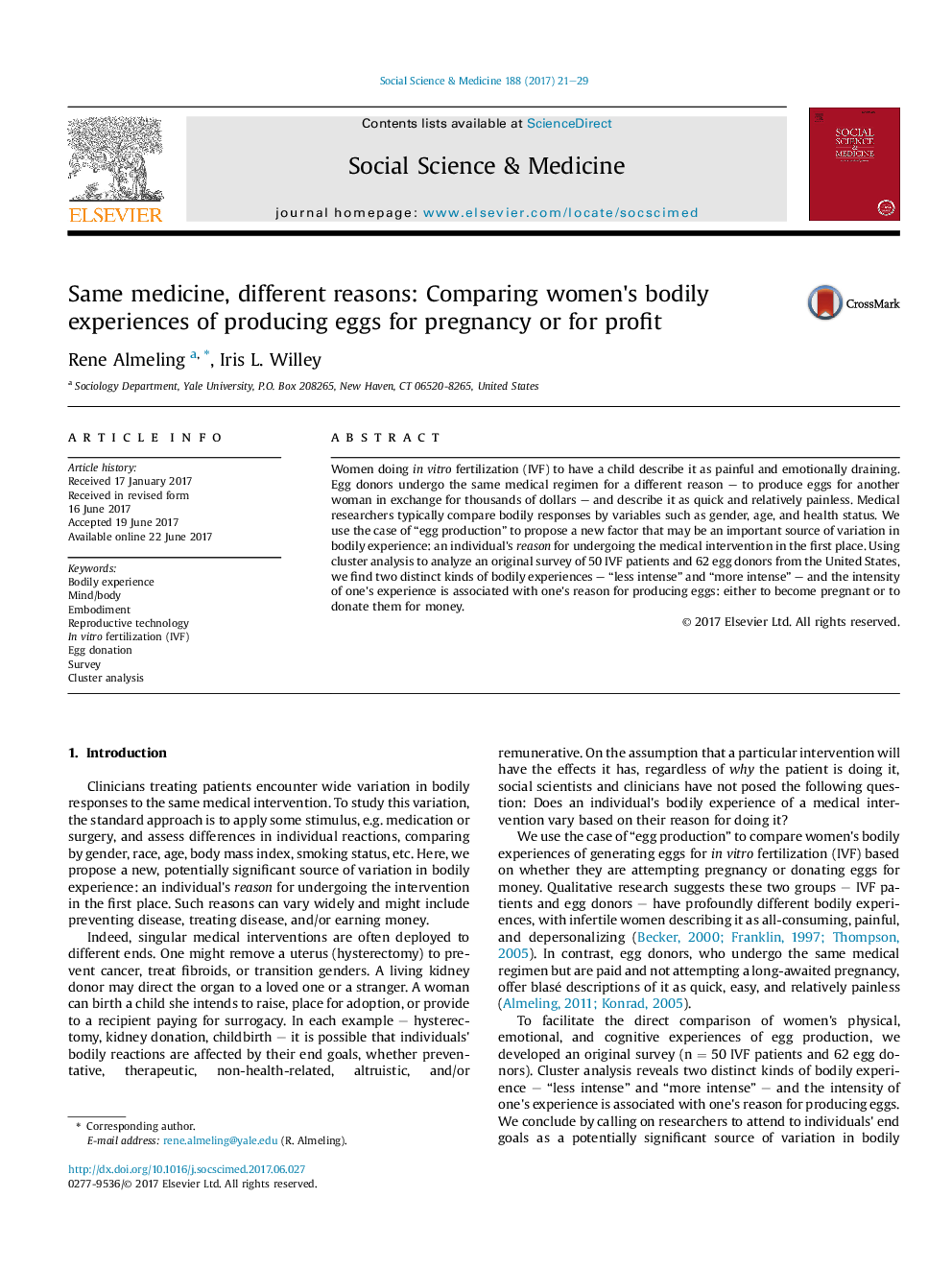| Article ID | Journal | Published Year | Pages | File Type |
|---|---|---|---|---|
| 5046506 | Social Science & Medicine | 2017 | 9 Pages |
â¢Women use reproductive technology to produce eggs for pregnancy or donation.â¢Women producing eggs for different reasons have different bodily experiences.â¢IVF patients have more intense bodily experiences than egg donors.â¢Cluster analysis is a useful tool for comparative analyses of bodily experiences.â¢Researchers studying medical interventions should attend to individuals' reasons.
Women doing in vitro fertilization (IVF) to have a child describe it as painful and emotionally draining. Egg donors undergo the same medical regimen for a different reason - to produce eggs for another woman in exchange for thousands of dollars - and describe it as quick and relatively painless. Medical researchers typically compare bodily responses by variables such as gender, age, and health status. We use the case of “egg production” to propose a new factor that may be an important source of variation in bodily experience: an individual's reason for undergoing the medical intervention in the first place. Using cluster analysis to analyze an original survey of 50 IVF patients and 62 egg donors from the United States, we find two distinct kinds of bodily experiences - “less intense” and “more intense” - and the intensity of one's experience is associated with one's reason for producing eggs: either to become pregnant or to donate them for money.
